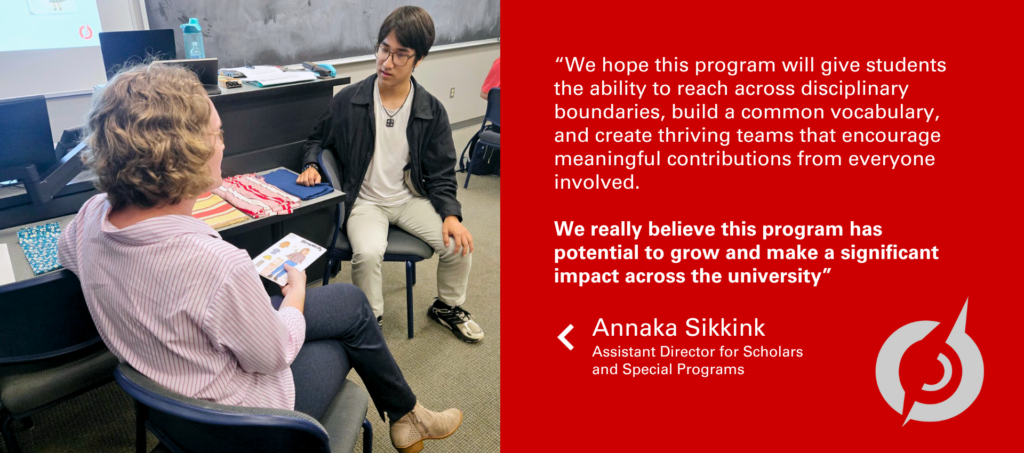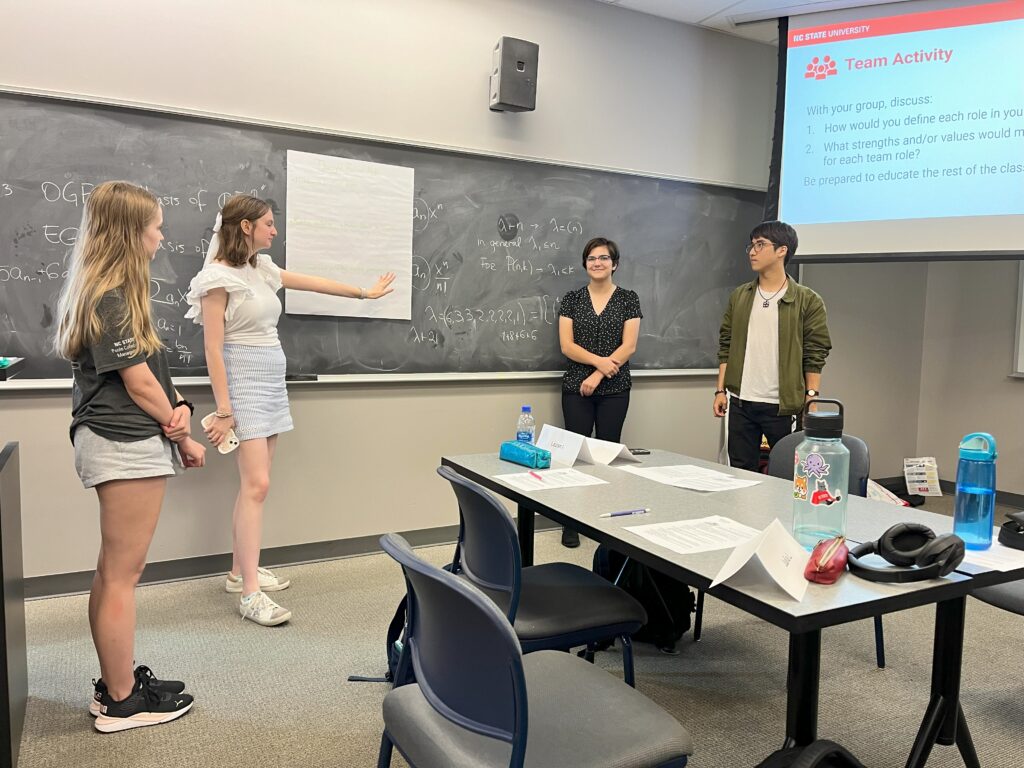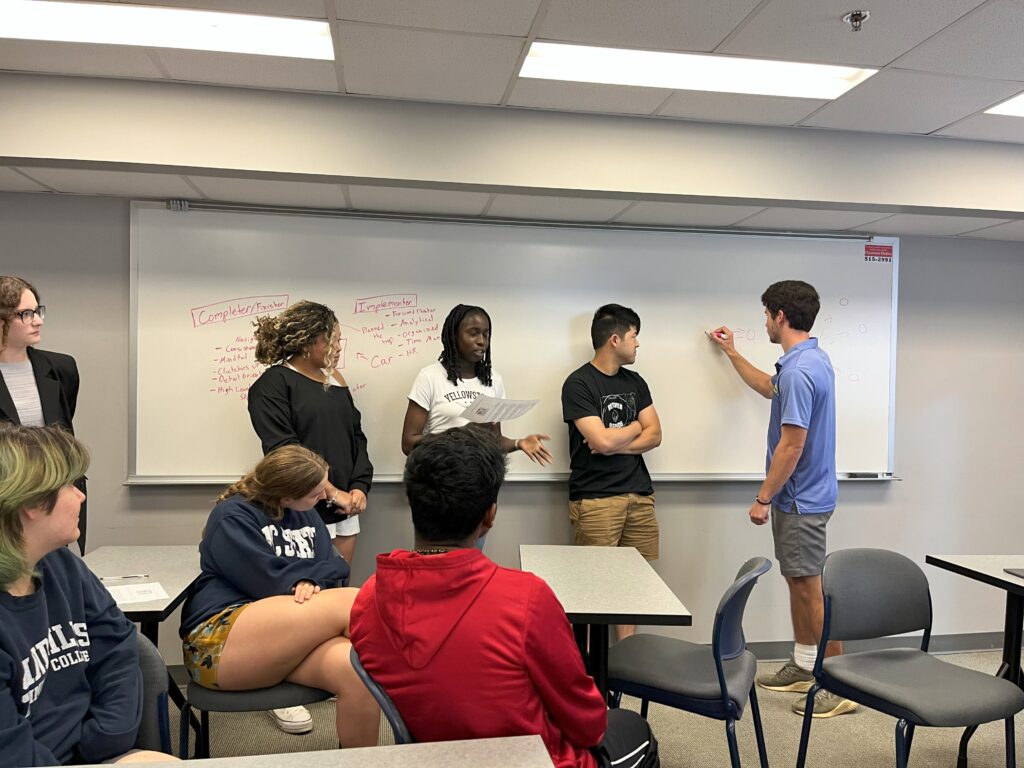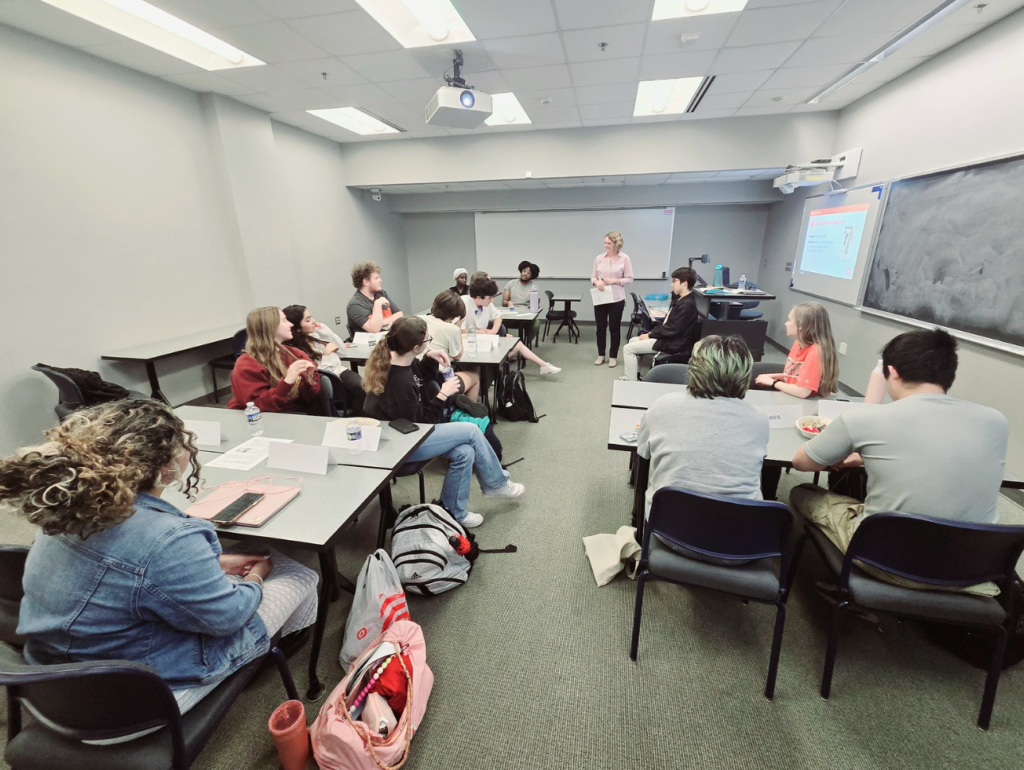
How do teams from different disciplines come together to solve the world’s grand challenges? The Thriving in Interdisciplinary Teams Workshop Series aims to equip students with the necessary skills and knowledge.
The workshop series was launched as a pilot program in the Fall 2024 by the Shelton Leadership Center. It enrolled 15 undergraduate students from 12 different majors and affiliated with seven units within the NC State Office of University Interdisciplinary Programs (OUIP). The series is set to expand this semester.
The program’s creation stems from an emerging need for students to learn more about how to operate within interdisciplinary settings.

“In speaking with our partners in OUIP, we heard over and over again that building effective teams is challenging, but building effective interdisciplinary teams is especially challenging,” Annaka Sikkink, Assistant Director for Scholars and Special Programs at the Shelton Leadership Center, said. “We hope this program will give students the ability to reach across disciplinary boundaries, build a common vocabulary, and create thriving teams that encourage meaningful contributions from everyone involved.”
Prior to the start of the workshop series, students view an online pre-learning module that explores how they can bring their personal values to an interdisciplinary team. Students enrolled in the program then begin a semester-long workshop series that includes innovative and application-based learning opportunities.
The workshops, which meet in person each month, are geared towards building team culture, collaborating ethically, and engaging communities within the context of interdisciplinary teams. They create an environment for students to connect with peers outside of their fields of study and learn how to best approach challenges and issues across disciplines.
For some program students, the workshop series provided an opportunity to explore their leadership style through a new lens.
“Interdisciplinary work is something every field of work should have, and through the Shelton Leadership Center, I was able to experience cooperating with people from completely different majors, first-hand,” Kenzo Hubert, an NC State undergraduate student studying statistics, said. “This experience was like no other―when else do you have the chance to work with people way outside your major?”

After just one semester of the pilot program, students have already mastered their leadership skills within an interdisciplinary setting. In post-program assessments, 100% of the students enrolled in Fall 2024 reported they can maximize the strengths of multidisciplinary team members to solve complex problems with the skills acquired through the workshops.
The program was also structured to allow students to think deeply about leading interdisciplinary teams and to practice and apply what they learned through hands-on activities.
“The Thriving in Interdisciplinary Teams workshop series is an excellent opportunity to learn about and practice key teamwork skills. Examples include the different roles team members play, and building team culture,” Ava Smith, an undergraduate NC State student studying Zoology.
The pilot program is now preparing to launch its second semester with expanded enrollment numbers, including 24 undergraduate students and 16 graduate students from throughout the university.
“We were very encouraged by the student feedback from the first round of the pilot. Students engaged and saw the relevance of what they were learning, both to their roles at NC State and their future career aspirations,” Sikkink said. “We really believe this program has potential to grow and make a significant impact across the university.”
With an increasing number of interested students, the Shelton Leadership Center is exploring how the program can fully launch or expand. For now, the next cohort of students will complete the workshop series when it begins at the end of January.
